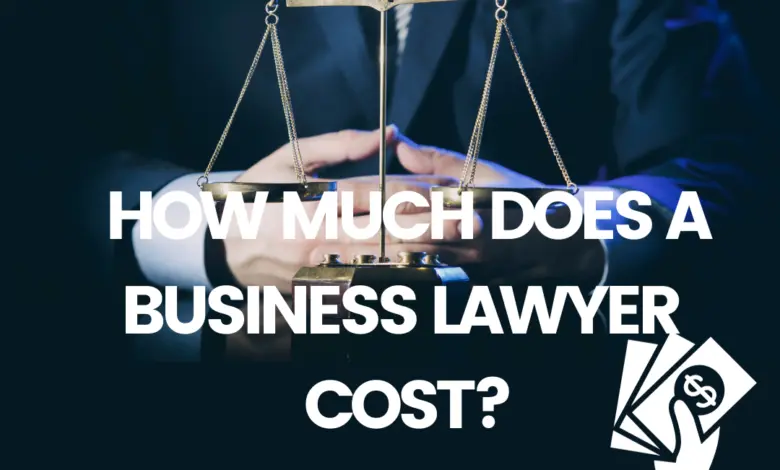How Much Does a Business Lawyer Cost?

Business attorneys can be invaluable allies when starting up your new enterprise, ensuring all necessary legal documentation is in order and helping with more complex matters as your business develops.
Costs associated with hiring a business lawyer will depend on your unique requirements, firm size, reputation and location.
Costs
Business lawyers are an essential resource for any small business, providing legal advice that ensures compliance with state and federal regulations while safeguarding against litigation risks. Unfortunately, however, such services come at a price.
An attorney’s hourly rates depend on their location and type of case or issue being litigated. For example, attorneys representing large Wall Street corporations tend to charge more per hour than lawyers representing smaller startup businesses.
However, some attorneys charge flat fees for certain tasks, like reviewing contracts or forming an entity. Unfortunately, these fees don’t typically include filing fees levied by the state as this will incur an extra cost. When choosing an attorney, make sure they make you feel at ease while also being familiar with legal issues faced by businesses; this will give you the best value for your money.
Hourly Rates
Business lawyers fill a crucial nexus between business and law. They specialize in corporate law, partnership law, banking law, sales law and securities law that could affect a company. Furthermore, business lawyers provide invaluable help with setting up different kinds of corporations such as S or LLCs and filing trademarks and patents.
Small business lawyers can also be helpful in anticipating issues that may arise in the future, such as discouraging employers from asking job candidates about religion or sexual orientation when making hiring decisions – potentially preventing an employer from facing discrimination lawsuits in the future. Business attorneys generally charge hourly rates; these will vary based on factors like location, firm size and reputation – but some offer flat fees for certain services such as forming LLCs or reviewing contracts that can save businesses money over time.
Flat Fees
Business lawyers typically charge hourly rates; however, flat fees may also be charged for more specific tasks, such as drafting contracts and agreements. They may also help navigate complex legal matters that could become expensive later, like litigation.
Small business owners frequently require legal assistance with employee and service contracts or with legal matters like wrongful termination lawsuits. Such work often requires extensive consultations and research efforts from legal specialists.
Flat fee arrangements can be beneficial to both attorney and client, eliminating the need to keep track of time and reducing potential billing disputes. It should be noted, however, that flat fees typically do not cover third-party costs such as filing fees or registrations and this should be discussed prior to hiring an attorney for flat fees; typically retainer fees are required up front before being gradually released as the work is completed.
Contingency Fees
Business lawyers can help you establish and organize your company legally, including organizing all the legal paperwork. In addition, they can make connections for you between accountants, marketing specialists and investors. Furthermore, they provide guidance when dealing with IRS or government agencies.
Contingency fees provide an alternative solution in cases like those filed against large corporations for financial losses; as hourly rates might be prohibitively expensive to pay upfront for representation.
Under this model, attorneys receive payment based on the success of their cases. The percentage charged may depend on risk, complexity and time needed for handling specific matters. State laws dictate how much attorneys may charge under this arrangement – therefore it is vital that attorneys communicate this arrangement to clients beforehand to avoid surprises later.




